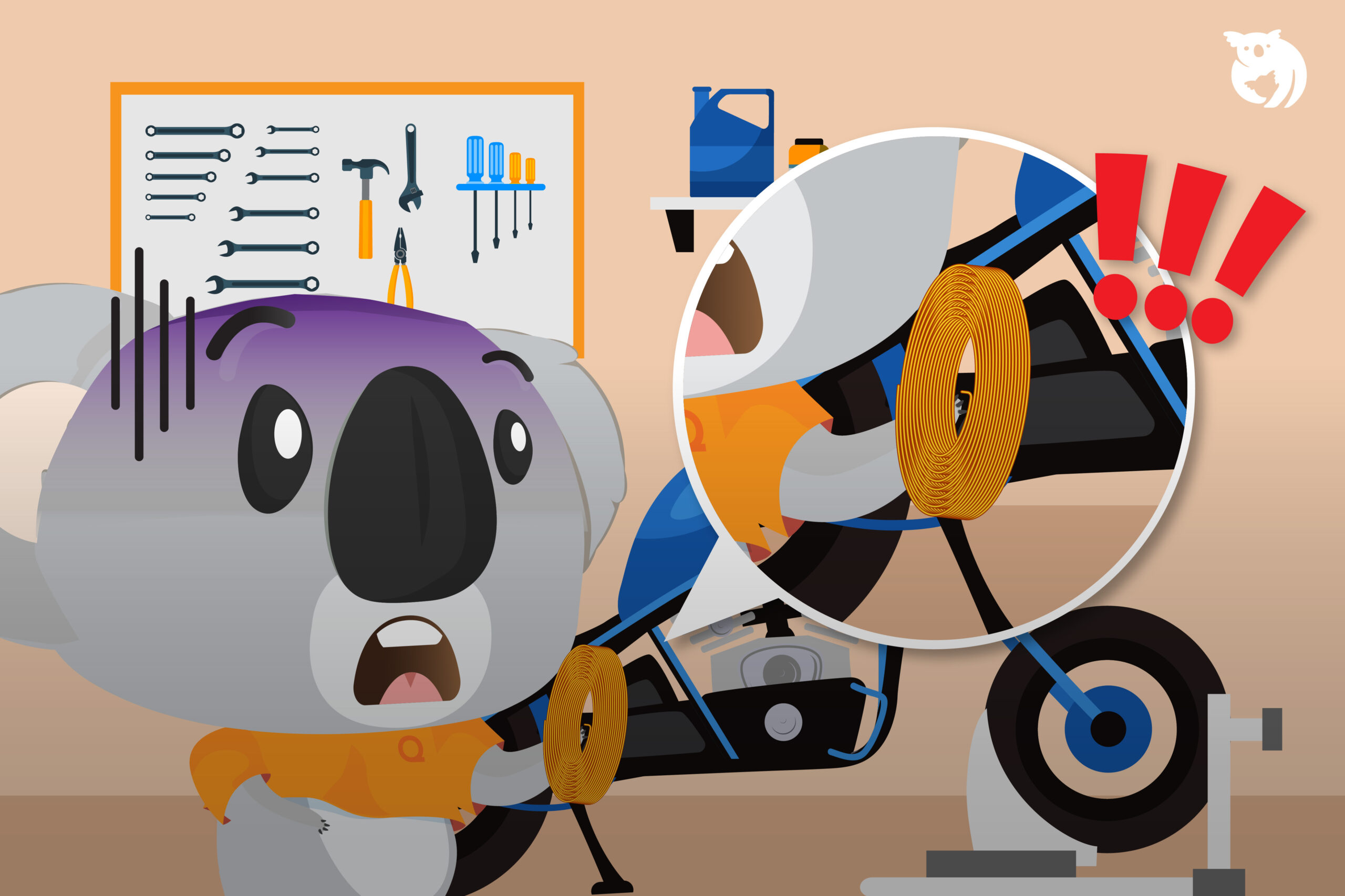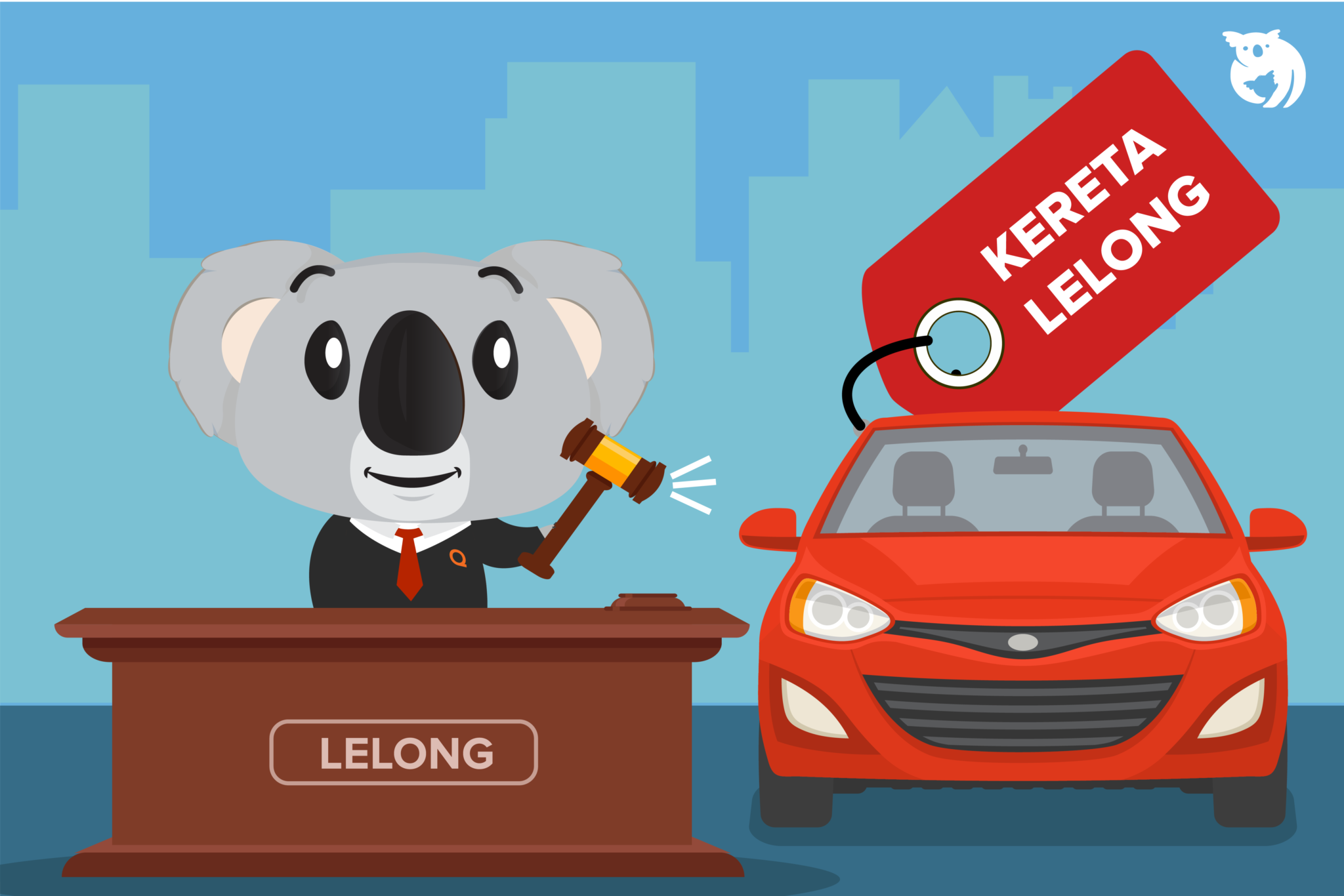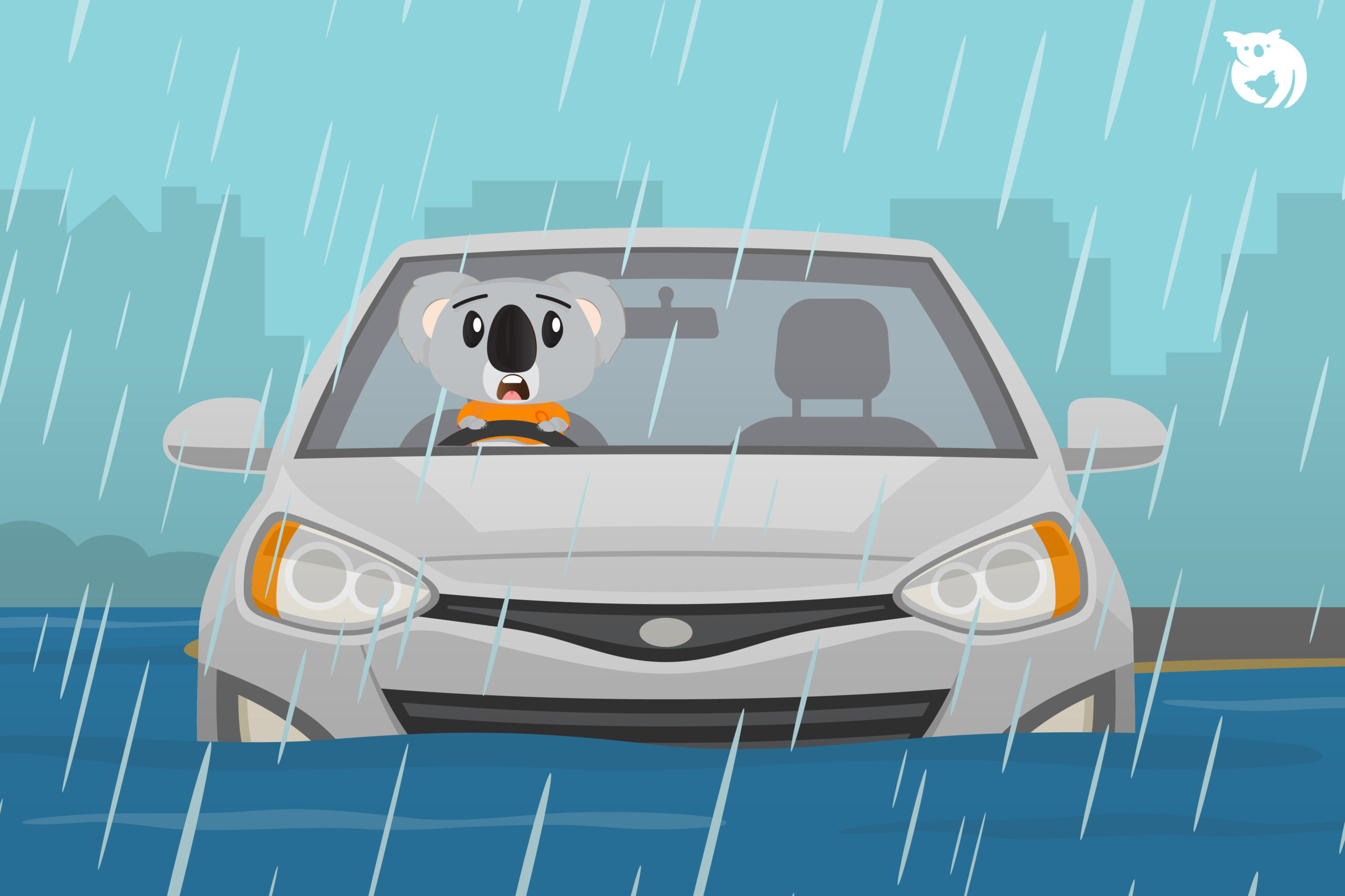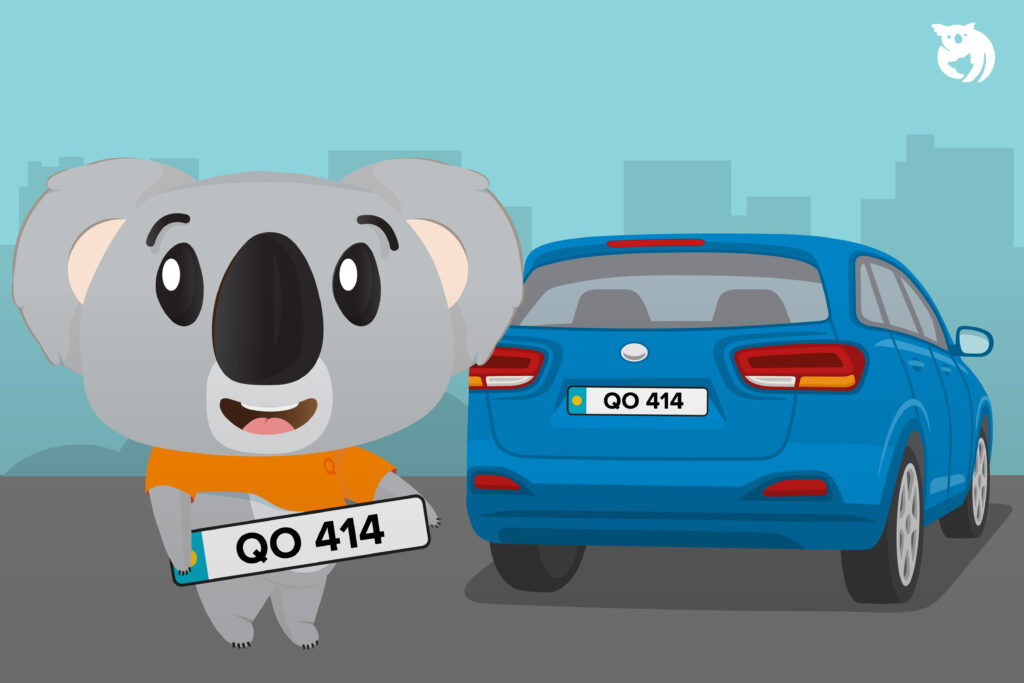What are the signs of motorcycle magnet coil damage that you need to know? How can you resolve this issue? Today, Qoala will share the signs of motorcycle magnet coil damage and the essential causes you should be aware of!
Signs of Motorcycle Magnet Coil Damage
When it comes to motorcycle magnet coils, did you know that repairing them can be quite costly? It’s an additional burden to gather funds for fixing a damaged motorcycle magnet coil.
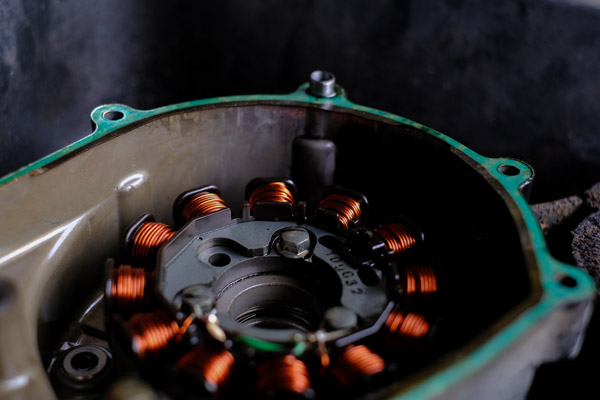
Battery Fuse
Firstly, you need to check if the motorcycle’s battery fuse is pulled or disconnected to identify signs of motorcycle magnet coil damage. The motorcycle’s battery must be in good condition for inspecting the coil magnet because a weak battery can make it challenging to determine whether the rectifier or coil magnet is damaged.
Start the motorcycle engine and then disconnect the battery fuse. If your motorcycle engine dies after a few moments, it indicates that your coil magnet is damaged.
Turn on the Motorcycle Lights
Next, to determine if the motorcycle magnet coil is still functioning properly or already damaged, you need to try turning on the motorcycle lights.
Usually, when the coil magnet is damaged, it affects the motorcycle lights. So, when you start the engine and the main headlights (low and high beam) of your motorcycle are dim or not illuminated, even after replacing the battery, it signifies that the motorcycle magnet coil is damaged and there is an issue.
Causes of Magnet Coil Damage
- Caused by a drained battery, which requires the coil magnet to operate independently to deliver sparks.
- Engine oil problems, such as not changing the engine oil for a long time or using oil that does not meet specifications (overfilled).
- Wiring issues.
Magnet Coil Maintenance Tips
- To maintain the magnet coil, you need to take care of both your motorcycle’s battery and coil magnet to ensure their optimal performance.
- Regularly check the coil magnet and avoid letting it develop black spots. If it turns black, you should replace the coil magnet.
- Replace your engine oil when it reaches the recommended mileage limit.
- Purchase original coil magnets.
Capacitor Discharge Ignition (CDI)
CDI stands for Capacitor Discharge Ignition, which controls the ignition timing and supplies the spark to the coil and spark plug in the combustion chamber. CDI serves other functions as well, such as controlling the engine’s maximum rotational speed, ignition timing, and various ignition-related controls.
Sometimes, your motorcycle’s CDI can be damaged due to certain factors. Here, we will help you understand the signs, causes, and maintenance of CDI.
Signs of CDI Damage
- Engine runs unevenly.
- Timing issues.
- Engine fails to start.
- Engine dies when the kickstarter is released.
Causes of CDI Damage
- Exposure to water vapour.
- Excessive vibrations.
- Heat.
CDI Maintenance Tips
- Avoid replacing a standard CDI with a racing CDI (which may increase motorcycle speed) as it can adversely affect the engine. The engine can be damaged due to excessive speed.
- Avoid purchasing non-original products.
To ensure the longer lifespan of your motorcycle’s CDI, you should handle it properly. Some tips for handling CDI include:
- Avoid incorrect positioning of the CDI, as it can shorten its service life.
- Ensure proper connections between pins to prevent short circuits.
How to Solve the Problem of Engine Failure to Start
Get into the habit of using the kickstarter instead of the electric starter. The electric starter relies on a significant amount of battery power. One sign of a faulty motorcycle magnet coil is when the engine fails to start. Therefore, before riding the motorcycle, it is recommended to warm up the engine.
If any parts of your motorcycle are damaged, replace them with new and original components. Change the engine oil when it reaches the recommended mileage limit. Service or replace a dirty air filter. Additionally, if your motorcycle’s battery is drained or in poor condition, replace it.
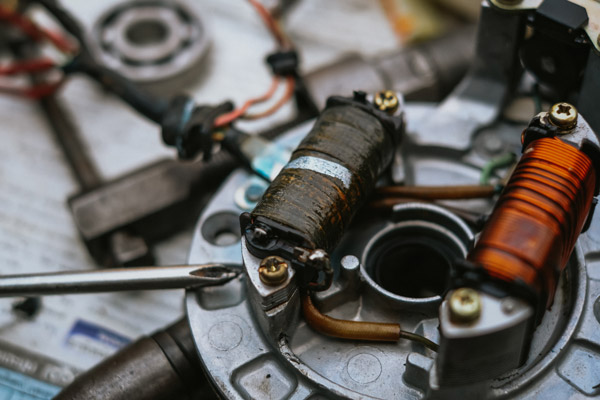
Why Motorcycle Riders Need Insurance?
Insurance plays a crucial role in providing additional protection for riders. Therefore, it is important for you to have insurance for comprehensive coverage.
Riders Face Risks
Motorcycle insurance is essential as riders are constantly exposed to risks. The only unknown factors are when and where these risks will occur, but the likelihood of encountering risks is high.
For instance, you may experience accidents or other mishaps while riding a motorcycle due to internal malfunctions.
Hence, motorcycle insurance can help you cope with these risks by providing protection or compensation in the event of any accidents while riding.
Protecting Assets
Not only that, but you also need motorcycle insurance to protect your motorcycle from any mishaps. Without insurance, you may have to bear additional expenses to cover costs such as motorcycle repairs and replacement parts.
Therefore, it’s crucial to understand that motorcycle insurance not only protects you but also safeguards your assets, namely your motorcycle, from unforeseen events.
Alleviating Financial Burden
As a motorcycle rider, you face significant risks when on the road. You may encounter accidents that result in hospitalization and substantial expenses.
If you rely solely on personal savings, you will have to utilize them to cover medical costs, which may prevent you from purchasing desired items. Insurance serves as an initiative to alleviate your financial burden without depleting your hard-earned savings.
With low premiums, you can obtain basic coverage from insurance companies, eliminating the worry of encountering costly mishaps.

 EN
EN
 MY
MY

